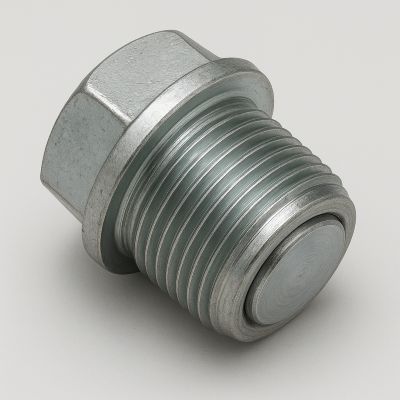Hydraulic systems power some of the most demanding machines in modern industry, construction equipment, agricultural machinery, automotive systems, and even oil rigs. At the heart of these systems lies one critical requirement: a secure seal that prevents fluid leaks under extreme pressure. Among the many small yet vital components, the threaded hydraulic Allen plug stands out as a dependable solution for achieving leak-proof performance and long-lasting strength.
In this post, we’ll explore what makes these plugs unique, their benefits, applications across industries, and tips for selecting and maintaining the right plug for your hydraulic systems.
Understanding Hydraulic Allen Plugs
A hydraulic Allen plug is a threaded plug designed to close off ports, cavities, or unused openings in hydraulic systems. Unlike standard plugs, it features a hex socket head (Allen design), which allows for tightening and removal using a simple Allen key.
Key Design Features:
➡️ Hex socket drive – enables installation in tight spaces with minimal tool clearance.
➡️ Threaded body – provides a reliable, high-pressure seal.
➡️ Compact profile – avoids protrusion, making it ideal for flush installations.
Materials Commonly Used:
➡️ Steel – high strength and cost-effective for general applications.
➡️ Stainless steel – excellent corrosion resistance, suitable for harsh environments.
➡️ Brass – good resistance to wear and compatible with certain fluids.
This thoughtful combination of material strength and design makes hydraulic Allen plugs indispensable for rugged applications.
The Role of Threading in Hydraulic Plugs
Threading is what transforms a simple plug into a leak-proof sealing solution. Properly cut threads ensure secure engagement with hydraulic ports, resisting both pressure and vibration.
Compatibility Considerations:
Hydraulic systems vary across industries, which means plugs must match the correct thread type:
➡️ BSP (British Standard Pipe) – widely used in Europe and Asia.
➡️ NPT (National Pipe Thread) – common in North America.
➡️ Metric threads – standard in many international systems.
Choosing the right thread type is essential to ensure compatibility and avoid cross-threading or leakage.
Key Benefits of a Threaded Hydraulic Allen Plug
1. Long-Lasting Strength
Built to withstand high pressure, hydraulic Allen plugs resist deformation, wear, and fatigue.
2. Compact Design
Their flush hex socket saves space, making them ideal for assemblies where clearance is limited.
3. Ease of Installation & Removal
An Allen key is all that’s needed, no bulky tools or extra clearance required.
4. Leak Prevention
Secure threading and precise fit help maintain hydraulic efficiency by preventing fluid loss.
5. Corrosion Resistance
Stainless steel and protective coatings extend service life, especially in corrosive or outdoor environments.
Applications Across Industries
Because of their durability and reliable sealing, threaded hydraulic Allen plugs are used in a wide range of industries:
1. Construction Equipment – Excavators, loaders, and cranes rely on them to prevent leaks in high-pressure hydraulics.
2. Agricultural Machinery – Tractors, plows, and harvesters use them for dependable performance in rough, outdoor conditions.
3. Manufacturing & Automation – Hydraulic presses, CNC machines, and robotic systems require secure plugs for efficient operation.
4. Automotive & Transportation – Brake systems, clutch systems, and power steering assemblies use threaded plugs for compact, leak-proof sealing.
5. Oil & Gas – Hydraulic pipelines, drilling rigs, and offshore equipment benefit from their strength and corrosion resistance.
Choosing the Right Threaded Hydraulic Allen Plug
When selecting the right plug, keep these factors in mind:
➡️ Material Type – Steel for strength, stainless steel for corrosion resistance, brass for fluid compatibility.
➡️ Pressure Rating – Ensure the plug matches or exceeds the maximum system pressure.
➡️ Size & Thread Compatibility – Always confirm the thread type (BSP, NPT, or metric).
➡️ Operating Environment – Consider temperature fluctuations, outdoor exposure, or contact with chemicals.
➡️ Standards & Certifications – Look for compliance with ISO, DIN, or SAE standards to ensure quality and safety.
Maintenance Tips for Longer Service Life
Even high-quality plugs need proper care. Here are the best practices to extend their service life:
➡️ Proper Installation – Use the correct torque and avoid overtightening.
➡️ Regular Inspection – Check for wear, cracks, or corrosion during routine maintenance.
➡️ Cleaning & Lubrication – Keep threads clean and lightly lubricated to prevent galling.
➡️ Avoid Common Mistakes – Prevent cross-threading by aligning properly before tightening.
Conclusion
The threaded hydraulic Allen plug may seem like a small component, but its role in maintaining secure, leak-proof hydraulic systems is massive. Offering strength, durability, and corrosion resistance, these plugs deliver long-term reliability across industries, from construction and agriculture to oil and gas.
For businesses looking to reduce downtime, prevent fluid loss, and maximize system efficiency, investing in high-quality threaded hydraulic Allen plugs is a cost-effective solution.
Upgrade your hydraulic systems today, choose the strength and reliability of threaded hydraulic Allen plugs.
Post time: Sep-26-2025


